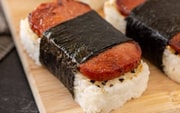Experts reveal what really happens when you microwave your favorite brew—and why it might be better to just start fresh
- Replies 0
We’ve all been there: you step away from your mug for a minute, only to return to a sad, lukewarm cup.
The quick fix? Zap it in the microwave. But according to scientists, that “fix” might be doing more harm than good—at least when it comes to taste, aroma, and even tradition.
Is microwaving tea a harmless habit? Or a silent offender ruining your daily ritual? Experts are weighing in, and the verdict may surprise you.
“Microwaved tea is terrible. It’s just terrible,” he told MailOnline.

The issue, he explains, goes far beyond personal preference. It’s a matter of science. Tea’s unique flavor comes from flavonoids—naturally occurring compounds that give it its signature taste. But they’re volatile, meaning they don’t stick around for long.
“They just disappear,” Miodownik said. “If you reheat your tea, you get zero.”
Also read: Stop microwaving these 5 foods immediately–expert warnings you can’t ignore
Inside a microwave, heat is applied unevenly. Some areas become piping hot while others stay cool.
The result? A top-heavy brew with “hot spots” and no real consistency. And the flavor? Often flat, bitter, or just off.
“If you don’t drink your tea soon after you’ve made it, then you don’t get very many of them left,” Miodownik noted.
And if you reheat it? Those remaining compounds vanish even faster.
While coffee lovers can reheat their brew with fewer consequences, Miodownik warns that tea’s “much more delicate flavor range” makes it far less forgiving.
“When you’re asked if you want tea or coffee on an airplane, never say tea,” he said. Low air pressure, dry cabin conditions, and dulled taste buds at altitude all work against your cup.
Office tea rounds also got a mention.
“Never get someone else to make you a cup of tea—this is a recipe for hating your colleagues,” he joked.
“It’s much better to go into the kitchen with them and make it alongside them.”
Still, he advises caution with ceramic mugs, which can get “extremely hot” in the process.
Also read: Stop reheating these foods now—dietitian warns it could be dangerous!
“Microwaving is a technique for preparing a cup of tea with high levels of phytochemicals beneficial for health,” he claimed.
By heating tea in the microwave for 2 to 3 minutes, Vuong says you can extract the same level of antioxidants as brewing for 20 minutes at 80°C. But he admits the flavor won’t win any awards.
“This tea may lack enjoyment in terms of taste and flavor.”
His advice for balance? Skip the milk until after brewing, since “the protein in milk can bind with polyphenols, minimizing their rapid extraction into the water.”
Even Yorkshire Tea weighed in: “At Yorkshire Tea, we recommend that you put the kettle on again and make a fresh one,” a spokesperson said.
“Some people use the microwave to reheat their tea. But it can make it taste a bit funny, especially if you have added milk and sugar.”
Read next: Say goodbye to microwave messes with this mind-blowing cleaning trick you'll wish you discovered earlier!

What’s your go-to tea routine? Do you swear by the kettle or reach for the microwave in a pinch? Share your favorite tips—or tea horror stories—in the comments below. Let’s spill the tea together.
The quick fix? Zap it in the microwave. But according to scientists, that “fix” might be doing more harm than good—at least when it comes to taste, aroma, and even tradition.
Is microwaving tea a harmless habit? Or a silent offender ruining your daily ritual? Experts are weighing in, and the verdict may surprise you.
Microwaved Tea? “It’s Just Terrible”
Professor Mark Miodownik of University College London didn’t hold back when asked about the practice.“Microwaved tea is terrible. It’s just terrible,” he told MailOnline.

Professor Mark Miodownik of University College London said that microwaved tea is terrible. Image source: panchanok prem / Unsplash
The issue, he explains, goes far beyond personal preference. It’s a matter of science. Tea’s unique flavor comes from flavonoids—naturally occurring compounds that give it its signature taste. But they’re volatile, meaning they don’t stick around for long.
“They just disappear,” Miodownik said. “If you reheat your tea, you get zero.”
Also read: Stop microwaving these 5 foods immediately–expert warnings you can’t ignore
What Really Happens Inside That Mug
When you boil water in a kettle, convection currents ensure even heating. The heat rises, the cool water sinks, and eventually the entire kettle reaches a uniform temperature. A microwave, however, doesn’t work that way.Inside a microwave, heat is applied unevenly. Some areas become piping hot while others stay cool.
The result? A top-heavy brew with “hot spots” and no real consistency. And the flavor? Often flat, bitter, or just off.
The Flavonoid Factor: Why It Matters
Flavonoids don’t just make tea taste good—they’re also linked to health benefits.“If you don’t drink your tea soon after you’ve made it, then you don’t get very many of them left,” Miodownik noted.
And if you reheat it? Those remaining compounds vanish even faster.
While coffee lovers can reheat their brew with fewer consequences, Miodownik warns that tea’s “much more delicate flavor range” makes it far less forgiving.
Flying Faux Pas: The Worst Cup of Tea?
According to Miodownik, one place you should never order tea is on an airplane.“When you’re asked if you want tea or coffee on an airplane, never say tea,” he said. Low air pressure, dry cabin conditions, and dulled taste buds at altitude all work against your cup.
Office tea rounds also got a mention.
“Never get someone else to make you a cup of tea—this is a recipe for hating your colleagues,” he joked.
“It’s much better to go into the kitchen with them and make it alongside them.”
But Not Everyone Agrees...
Professor Chris Budd, a mathematician at the University of Bath, offers a more lenient take: “It’s perfectly fine to heat your tea in a microwave,” he said, explaining that convection currents in liquid help distribute the heat more evenly than in solid foods.Still, he advises caution with ceramic mugs, which can get “extremely hot” in the process.
Also read: Stop reheating these foods now—dietitian warns it could be dangerous!
Health vs. Taste: Can You Have Both?
Professor Quan Vuong, head of food science at the University of Newcastle, takes an entirely different approach—especially when it comes to the health benefits of tea.“Microwaving is a technique for preparing a cup of tea with high levels of phytochemicals beneficial for health,” he claimed.
By heating tea in the microwave for 2 to 3 minutes, Vuong says you can extract the same level of antioxidants as brewing for 20 minutes at 80°C. But he admits the flavor won’t win any awards.
“This tea may lack enjoyment in terms of taste and flavor.”
His advice for balance? Skip the milk until after brewing, since “the protein in milk can bind with polyphenols, minimizing their rapid extraction into the water.”
The Final Sip
Ultimately, it comes down to what you value most—taste, health benefits, or convenience. The experts agree on one thing: tea is a complex, delicate drink. Reheating it might seem harmless, but it can strip away the very compounds that make it special.Even Yorkshire Tea weighed in: “At Yorkshire Tea, we recommend that you put the kettle on again and make a fresh one,” a spokesperson said.
“Some people use the microwave to reheat their tea. But it can make it taste a bit funny, especially if you have added milk and sugar.”
Read next: Say goodbye to microwave messes with this mind-blowing cleaning trick you'll wish you discovered earlier!
Key Takeaways
- Experts warn that microwaving tea ruins taste by degrading flavonoids, the compounds responsible for flavor and health benefits.
- Uneven heating in microwaves leads to inconsistent temperature and diminished enjoyment.
- Microwaving tea may preserve more phytochemicals than traditional brewing—but possibly at the cost of taste.
- If flavor matters most, experts recommend skipping the microwave and making a fresh cup instead.






